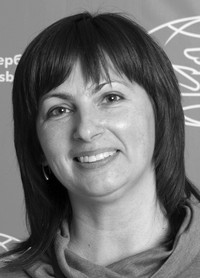Combined precompetitive mental conditioning model customized for pandemic-related limitations
Keywords:
sports psychology, distance survey, social networks, precompetitive training, autogenic training.Abstract
Objective of the study was to develop a new combined precompetitive psychological training model customizable for the pandemic-related limitations.
Methods and structure of the study. In addition to the traditional live/ offline test equipment, the combined precompetitive mental conditioning model included an access to psychological information. At the end individual precompetitive mental conditioning plan was developed for a specific sports event.
The popular social network VKontakte was used for the athletes from all over Russia who received an access to the precompetitive-mental-conditioning-related information and individualized precompetitive mental conditioning service to facilitate their trainings for specific events.
Results and conclusion. Distance/ online precompetitive mental conditioning service formats have their benefits in at least the following domains: practical knowledge and guidance is accessible from any point of the globe; and the service is rather flexible and customizable for the individual training and competitive needs and goals. Such a service may be particularly efficient when combined with a reasonable direct/ live communication a sports psychologist with athlete at key points to facilitate competitive progress.
References
Banayan A.A., Lashkul A.K. Assessment of psycho-emotional state of hockey players during compulsory self-isolation period. Actual problems and prospects for development of system of sports training, mass physical education and sports. Proc. res.- practical. conferences with international participation (25-26.10.2021, St. Petersburg). St. Petersburg, 2021. pp. 128–133.
Banayan A.A Psychophysiological factors of sports success of elite Paralympic athletes (case study of sledge hockey). Abstract of PhD diss. St. Petersburg, 2020. 24 p.
Ivanova I.G., Banayan A.A., Yanina E.A. et al. Features of voluntary self-regulation in Paralympic athletes with musculoskeletal disorders from various sports classes. Uchenye zapiski Universiteta im. P.F. Lesgafta. 2020. No. 6 (184). pp. 440–448.
Korotkova A.K., Banayan A.A. Design of remote survey system for athletes. Adaptivnaya fizicheskaya kultura. 2020. No. 3 (83). pp. 46–47.
Banayan A.A., Vorobev S.A., Kiseleva E.A. et al. The structure and content of the general psychological training of elite Paralympic athletes. Teoriya i praktika fiz. kultury. 2021 no. 6 (994). S. 24–26.
Trifonova E.A. Stress coping strategies and human somatic health: theoretical approaches and empirical studies. Izvestiya RGPU im. A. I. Gertsena. 2012. No. 145. pp. 97–108.
Leguizamo F., Olmedilla A., Núñez A., Verdaguer FJP, Gómez-Espejo V., Ruiz-Barquín R., Garcia-Mas A. Personality, Coping Strategies, and Mental Health in High-Performance Athletes During Confinement Derived From the COVID-19 Pandemic. Front Public Health. Available at: https://www.frontiersin.org/articles/10.3389/fpubh.2020.561198/full (date of access: 24.05.2021).
Szczypińska M., Samełko A., Guszkowska M. Strategies for Coping with Stress in Athletes During the COVID-19 Pandemic and Their Predictors. National Library of Medicine. Available at: https://pubmed.ncbi.nlm.nih.gov/33737896/ (date of access: 24.05.2021).


